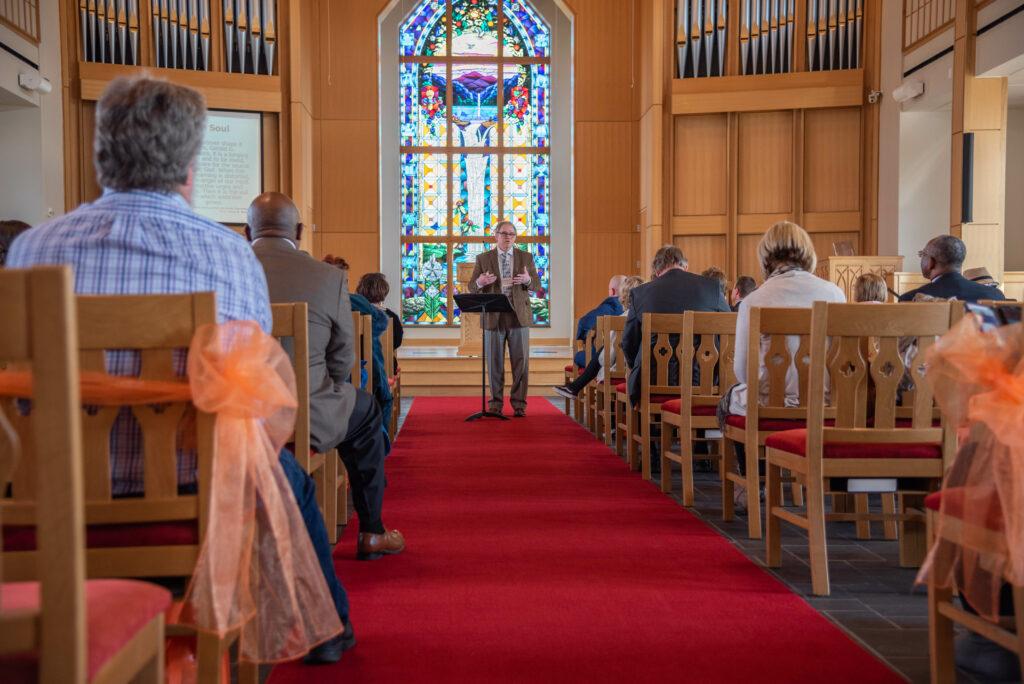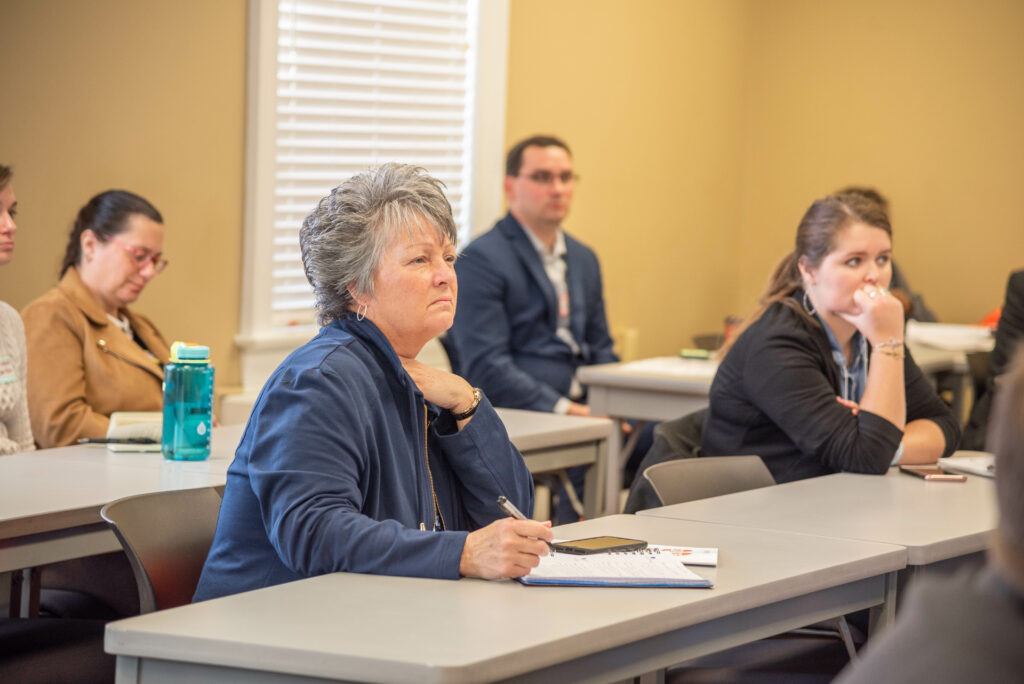In acknowledgement of the growing focus on rural health and in keeping with its mission to “lead with purpose,” the Public Health program at Campbell University organized a one-day conference that empowered faith leaders to mobilize their communities to better respond to the health crisis of opioid abuse. The Recovering Hope Conference was held in Butler Chapel on March 7.
This event was focused primarily on teaching crisis management strategies to faith leaders, but operated out of the framework provided by public health agencies to help combat the opioid epidemic in the United States.
 The idea for the conference was originally discussed during a “Population Health Think Tank” meeting that included members of the health department, medical professionals and faculty at Campbell University. David Tillman, Public Health Program Chair, took the lead on the organization of the event, which was originally scheduled for fall 2018. When Hurricane Michael threatened our area with inclement weather, the Public Health team cancelled the event, but they were determined to see the idea come to life and rescheduled for spring.
The idea for the conference was originally discussed during a “Population Health Think Tank” meeting that included members of the health department, medical professionals and faculty at Campbell University. David Tillman, Public Health Program Chair, took the lead on the organization of the event, which was originally scheduled for fall 2018. When Hurricane Michael threatened our area with inclement weather, the Public Health team cancelled the event, but they were determined to see the idea come to life and rescheduled for spring.
With 75 participants, session leaders and keynote speakers in attendance, the event brought together a group of experts from across the United States to discuss the opioid crisis. Participants included faith leaders, government officials and public health professionals on the forefront of this epidemic.
North Carolina Attorney General Josh Stein opened the conference by stating, “You all are here which tells me you have passion and you have love. Those are probably the two biggest ingredients it is going to take for us to succeed in tackling this problem.”
Following the morning plenary sessions, participants had the option to attend focused break-out sessions in Taylor Hall, which covered topics like mental health first-aid, faith communities’ role in substance abuse counseling and harm reduction and our justice system’s response to behavioral/mental health disorders. A fellowship lunch was also hosted in Taylor Hall, which allowed the participants and speakers an opportunity to discuss ideas and initiatives from the morning sessions.
For the closing session, the group returned Butler Chapel for beautiful music by Giles Blakenship and remarks from Dr. Monty Burks, Director of Faith-Based Initiatives for the Tennessee Department of Mental Health and Substance Abuse Services, and Drew Brooks, Faith Partners Executive Director. The conference was brought to an end with a call to action, where participants were given the opportunity to write down their next steps or ideas that would like to see come to fruition in their respective communities.
Pastor Greg Delaney, who serves as the Outreach Coordinator at Woodhaven, a treatment center known as “a safe place to recover,” also spoke during the plenary session.
“The Recovering Hope Conference was such a blessing to me,” Delaney said. “New connections were made, new ideas shared, and the day lived up to its moniker: hope filled. As one who both presented and attended, I was impressed and stirred by the quality of workshops and speakers. And while I know that this community challenge of addiction is a big one, I walked away encouraged that those who attended were better equipped and informed to influence and make a difference in their communities.”




